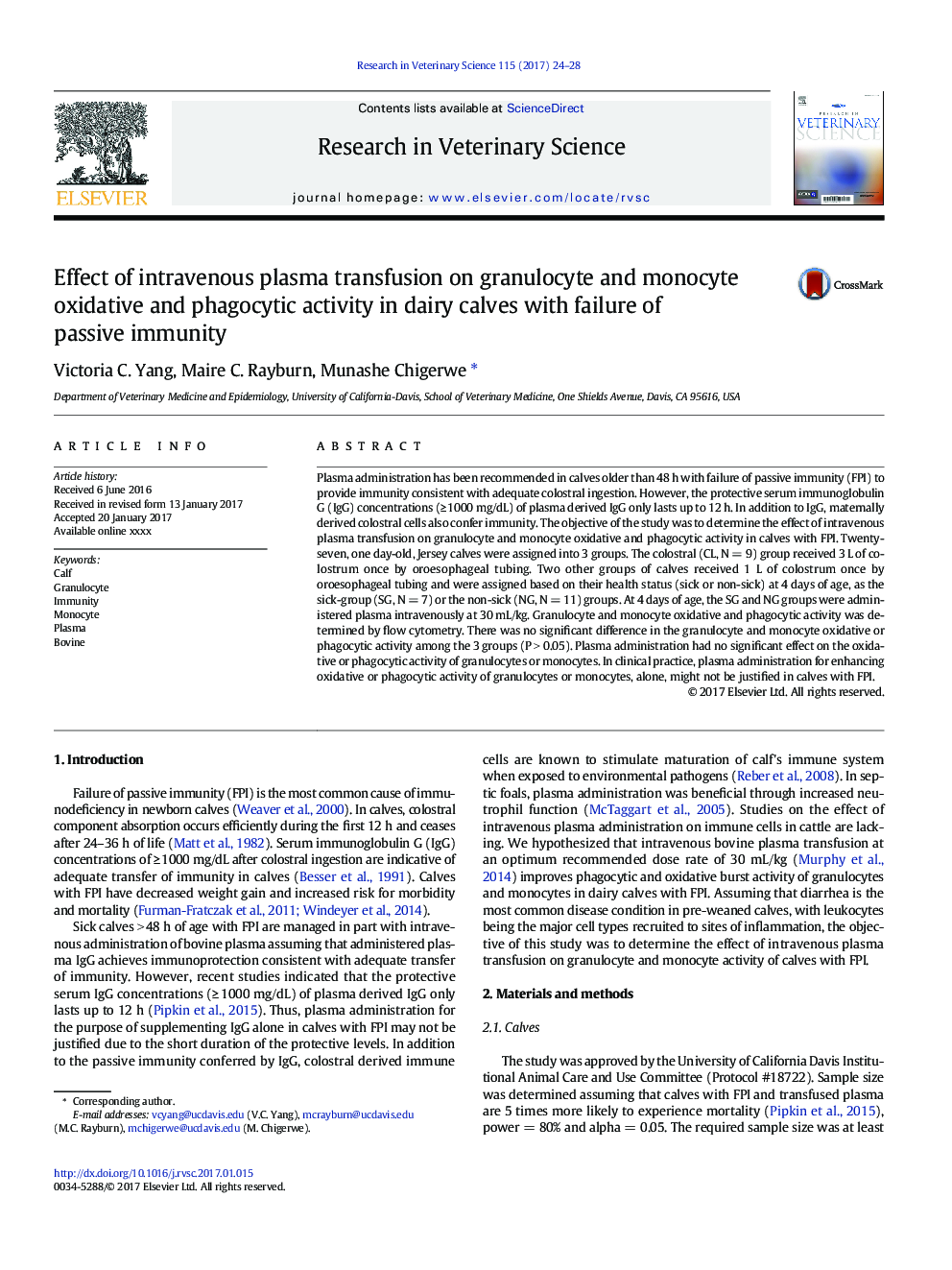| Article ID | Journal | Published Year | Pages | File Type |
|---|---|---|---|---|
| 5543808 | Research in Veterinary Science | 2017 | 5 Pages |
Abstract
Plasma administration has been recommended in calves older than 48 h with failure of passive immunity (FPI) to provide immunity consistent with adequate colostral ingestion. However, the protective serum immunoglobulin G (IgG) concentrations (â¥Â 1000 mg/dL) of plasma derived IgG only lasts up to 12 h. In addition to IgG, maternally derived colostral cells also confer immunity. The objective of the study was to determine the effect of intravenous plasma transfusion on granulocyte and monocyte oxidative and phagocytic activity in calves with FPI. Twenty-seven, one day-old, Jersey calves were assigned into 3 groups. The colostral (CL, N = 9) group received 3 L of colostrum once by oroesophageal tubing. Two other groups of calves received 1 L of colostrum once by oroesophageal tubing and were assigned based on their health status (sick or non-sick) at 4 days of age, as the sick-group (SG, N = 7) or the non-sick (NG, N = 11) groups. At 4 days of age, the SG and NG groups were administered plasma intravenously at 30 mL/kg. Granulocyte and monocyte oxidative and phagocytic activity was determined by flow cytometry. There was no significant difference in the granulocyte and monocyte oxidative or phagocytic activity among the 3 groups (P > 0.05). Plasma administration had no significant effect on the oxidative or phagocytic activity of granulocytes or monocytes. In clinical practice, plasma administration for enhancing oxidative or phagocytic activity of granulocytes or monocytes, alone, might not be justified in calves with FPI.
Related Topics
Life Sciences
Agricultural and Biological Sciences
Animal Science and Zoology
Authors
Victoria C. Yang, Maire C. Rayburn, Munashe Chigerwe,
